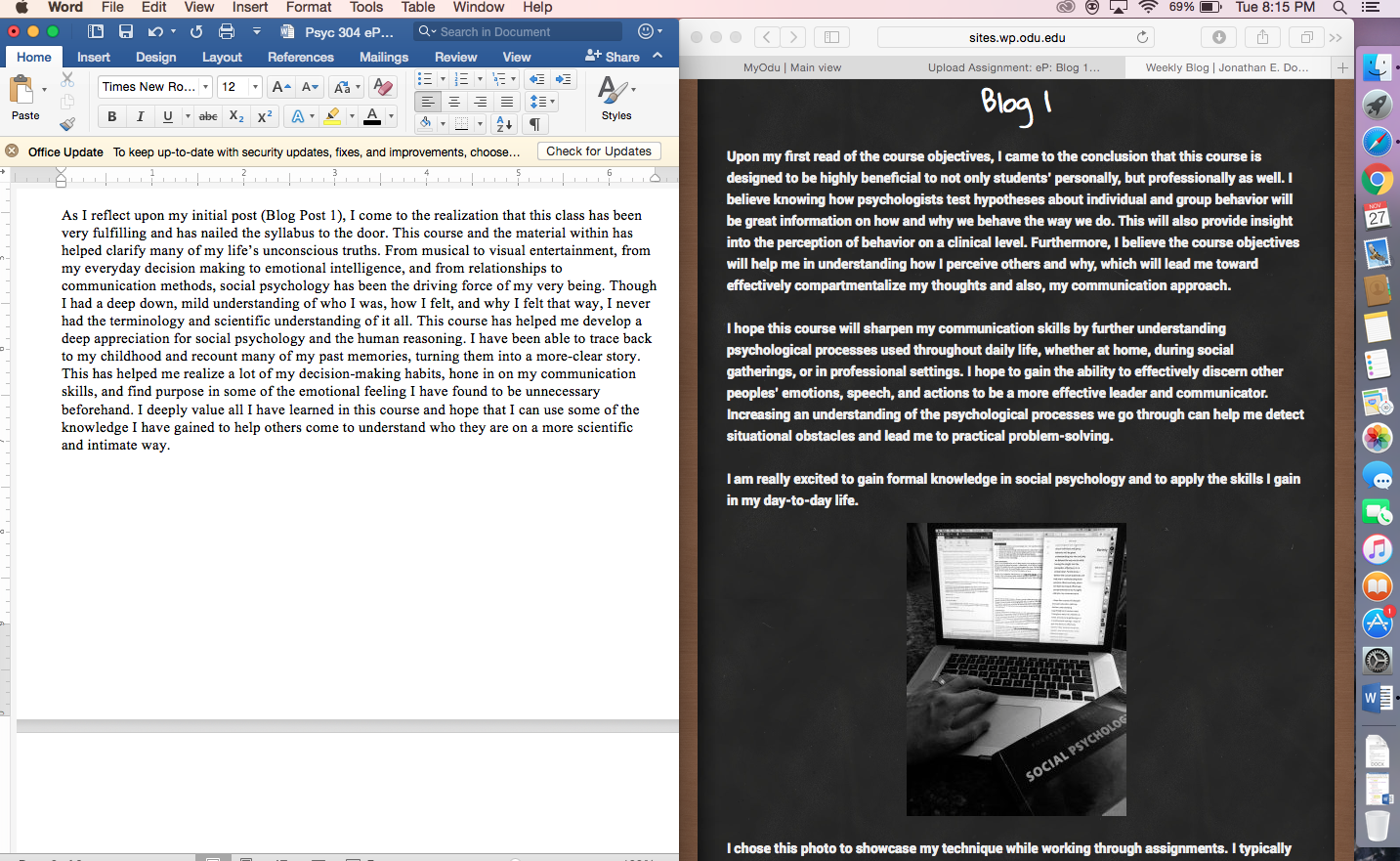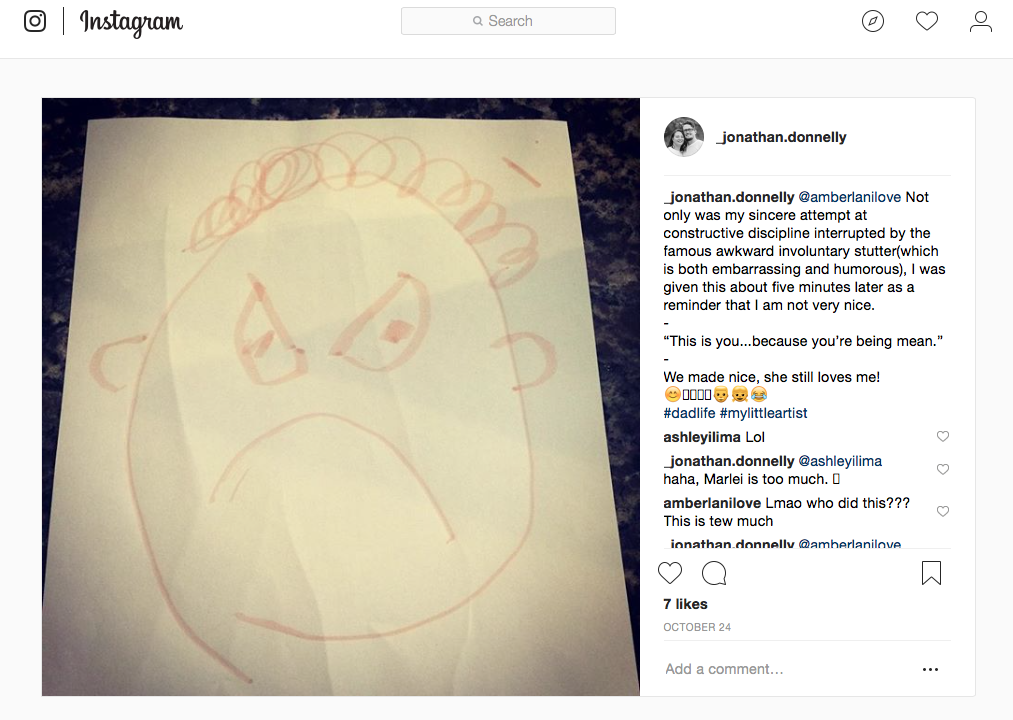As I reflect upon my initial post (Blog 1), I come to the realization that this class has been very fulfilling and has nailed the syllabus to the door. This course and the material within has helped clarify many of my life’s unconscious truths. From musical to visual entertainment, from my everyday decision making to emotional intelligence, and from relationships to communication methods, social psychology has been the driving force of my very being. Though I had a deep down, mild understanding of who I was, how I felt, and why I felt that way, I never had the terminology and scientific understanding of it all. This course has helped me develop a deep appreciation for social psychology and human reasoning. I have been able to trace back to my childhood and recount many of my past memories, turning them into a more clear story. This has helped me realize a lot of my decision-making habits, hone in on my communication skills, and find purpose in some of the emotional feelings I have found to be unnecessary beforehand. I deeply value all I have learned in this course and hope that I can use some of the knowledge I have gained to help others come to understand who they are on a more scientific and intimate way.

This is a screenshot of my computer with dual windows open. In the window to the right, my first blog post (Blog 1) is opened as I read over it to reflect on my initial expectations for the course and to gather my thoughts for this post (Blog 10). In the window to the left, I have opened my rough draft of this post. This is the way I have always worked and utilized during this course. I have had a pleasure working at this course and have learned more than I expected to.

